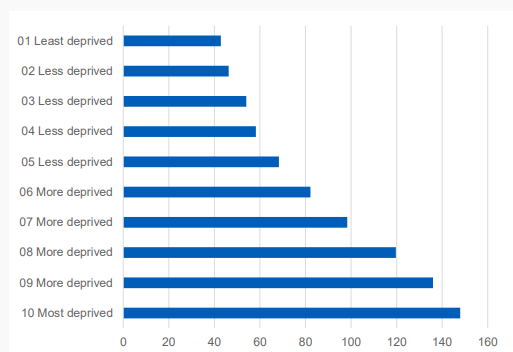Received from Winvisible (Women with Visible and Invisible Disabilities), a London-based organisation. (Sorry for delayed posting, I've only just got notification from my inbox.)
Find out more about WinVisible at
https://winvisibleblog.wordpress.com/
WinVisible
is speaking at this online event for the Right to Food, held tomorrow
morning, on UN World Food Day.
Webinar 10am to 11am. Free registration here
The Right to Food — webinar Friday 16 Oct 2020
 |
The Right to Food: A World Food Day Event
|
Right
to Food webinar organised by the Right to Food project at Sustain and HEAR
Network as part of London
Challenge Poverty Week — photo of a fruit stall.
This
webinar is organised by the Right
to Food project at Sustain: the Alliance for Better Food and
Farming and HEAR the
pan-equality London network, as part of London Challenge Poverty Week. Info
below from the joint organisers:
“We
will hear from speakers about what they believe needs to happen in order to
ensure that all Londoners have their right to food respected.“
About
this Event
“On
this webinar we will hear from a range of speakers from across London who
will talk about the many barriers than Londoners face in achieving their
right to food and also crucially what needs to happen in order for this right
to be a reality.
We
will hear from:
Women
Inspiring New Generations (WINGS). WINGS is a group of
women who, with their young children, come together through Praxis to nurture
their wellbeing, build new positive relationships and find respite from the
demands of everyday life. WINGS mums also discuss issues that affect them,
and share knowledge and experience in order to build solidarity and strength.
Deidre
‘Dee’ Woods is an award-winning cook, community food
educator, urban agriculturalist, broadcaster, and researcher, with over 25
years’ experience of working in diverse communities. In 2016 she was awarded
BBC Food and Farming Awards, Cook of the Year. Dee is a Visiting Research
Associate at CAWR, Coventry University, a member of the GLA London Food
Board, the Community Food Growers Network (CFGN) and is co-founder of
Granville Community Kitchen. Dee is co-editor of A People’s Food Policy and a
member of Community Food Growers Network (CFGN). Dee is also a trustee of
Sustain the Alliance for Better Food and Farming.
Clara
Widdison, Kitchen Social project manager for Mayor’s
Fund for London. Clara has been at the forefront of developing community food
models in the UK for the past five years. She was a part of the team who
developed the ground-breaking social supermarket model, Community Shop. Clara
holds a MSc in Food Policy from City, University of London. Her qualitative
research into motivation and barriers to purchasing fresh produce within a
low income community won the City University and Worshipful Company of Cook’s
Award in 2017. She is a 2019/20 Churchill Fellow.
Claire
Glasman is from WinVisible (women with visible and invisible
disabilities), a grassroots multi-racial organisation of women of all
backgrounds, including disabled asylum seekers. We provide self-help
information, peer support, campaigning. We help disabled women secure
benefits, and campaign against the hated disability benefit tests and with
relatives of disabled claimants who starved after being cut off. Having
enough money to buy healthy food, food delivery, getting support to cook and
eat, and tackling discrimination are all vital. The Environment, Food and
Rural Affairs Select Committee quoted our testimony in their report
on food supply during COVID-19. We support a Care Income
for people and planet, mothers and other carers against poverty and hunger.
Find us on Twitter at @WinVisibleWomen
Imogen
Richmond-Bishop, right to food project coordinator and
Atlantic Fellow 2020-2021.
London
Challenge Poverty Week takes place from 12 to 18 October
2020 and is a chance for us to raise our voices against poverty in the
capital and show what needs to be done to sort it out.
If
you have any access or communication needs to support you to attend and take
part in this Zoom event, for example BSL interpretation etc. please email:
Christine@hearequality.org.uk as soon as possible after registration, telling
us what you need.”






















